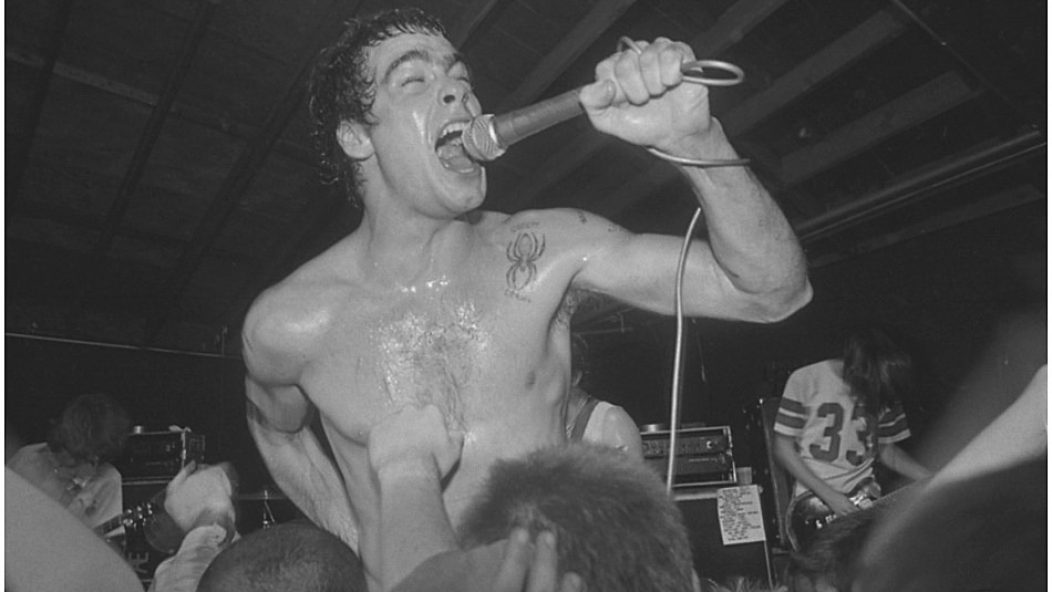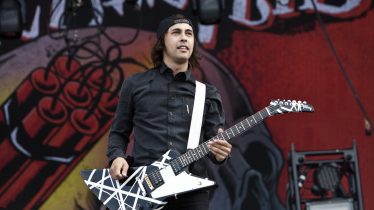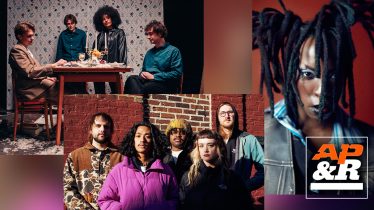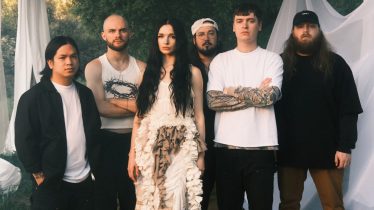
These 11 singers steered the course of punk and hardcore in the ’80s
The idea of compiling a list of the greatest punk singers of the ‘80s might seem a bit odd. After all, this was when hardcore rose and quickly dominated all things punk. And let’s face it: Hardcore vocalists are more noted for bellowing than actual singing, per se. Not that late ‘70s punk harbored many crooners.
Surprisingly, there were more actual singers in the traditional sense in ‘80s punk than in the ‘70s variant. They usually worked more within the punk format than hardcore. Yet even the most 600 mph thrash bands could produce singers of Glenn Danzig’s caliber. As the Misfits went from being a midnight creature feature version of the Ramones to a slasher film hardcore outfit, he still retained the golden, dulcet tones of Elvis Presley. Or Bad Brains vocalist H.R.’s gonzo knack with a melody. Black Flag/Circle Jerks mic mauler Keith Morris may have not had much range, but he had a melodic sense finely honed by ‘60s AM radio. Joan Jett possessed similar qualities, burnished by her immersion in the golden age of glam rock. Then you have X’s John Doe and Exene Cervenka, whose idiosyncratic approach to harmony would baffle Brian Wilson.
Read more: 10 Joan Jett-inspired artists who are breaking boundaries just like her
There were also those who tapped into the wailing spirit of psychedelic blues great Janis Joplin—seemingly antithetical to the punk aesthetic, but it worked. But ultimately, you have to pay homage to the leather-lunged, hunched-forward, white-knuckled death grip on the mic spirit of the earliest hardcore howlers. Considering how the two most influential—Black Flag’s Henry Rollins and Minor Threat’s Ian MacKaye—were byproducts of the U.S. capital’s fervid hardcore scene, it might be dubbed the D.C. School of Hardcore Vocalists.
As with our list of the best ‘70s punk vocalists, it was those who brought something unique to sound who stood out. It’s with this knowledge that Alternative Press presents the 11 best punk vocalists of the ‘80s.
John Doe and Exene Cervenka
Best heard on: Los Angeles
Though L.A.’s definitive punk band X had been active since 1977, their debut album Los Angeles for local indie Slash Records wasn’t released until 1980. Therefore, their effect was local until that moment. Their influence went national across the first five years of the ‘80s as they became the darling of American punk. Even hardcore eclipsed the original punk sound’s popularity for a few years. X were unique in several ways, but a major one was having two lead singers. Most of the time, Doe and Cervenka indulged in harmonies seemingly ripped straight outta Gregorian chants. This definitely distinguished them.
Gary Floyd
Best heard on: 1980-1986
Talk about not fitting any standard profile! Gary Floyd, singer for lefty Austin punk lords the Dicks, was a proud gay communist with a linebacker’s physique who occasionally wore the most outrageous drag this side of Divine. What really set him apart was that he was a wailing blues singer with the pipes of a male Joplin. None of the belligerent one-note bark of most early ‘80s hardcore outfits. Floyd could sing. Even on the most vicious Dicks cuts, such as the immortal “Dicks Hate The Police,” he sang powerfully and in pitch. He only got better across such later bands as Sister Double Happiness.
Joan Jett
Best heard on: I Love Rock ‘N’ Roll
True, Jett began busting open the boys’ club that was rock ‘n’ roll in the ‘70s, with the legendary L.A. glam-punks the Runaways. But as influential as they were, Jett’s greatest success was in the ‘80s, as a solo artist fronting the Blackhearts. Alongside the Clash, she was the one bringing punk into the mainstream a good 12 years before Green Day’s breakthrough via her granite-hard, bubblegum-and-glam-inflected rock ‘n’ roll. Its core, aside from Jett’s thick Gibson chording, is her husky, smoky alto. While her singing range isn’t wide, she never strays beyond her limits and delivers more emotional power than a truckload of opera singers. She also has the best growl this side of Brenda Lee.
Darby Crash
Best heard on: (GI)
OK, let’s be honest here. Calling Darby Crash, the Germs’ autodestructive leader, a “singer” is not a stretch. It’s taking the term, applying it to Silly Putty and elasticating it five miles. He was absolutely early L.A. punk’s best lyricist, but it was hard to tell via his vomiting delivery. But punk threw all those technical considerations in the incinerator, democratizing the playing field for one and all. That raspy, baying rant across sole LP (GI) inspired generations of hardcore vocalists. This is Crash’s importance: He’s as influential as Iggy Pop or Johnny Rotten were five years before.
Henry Rollins
Best heard on: Damaged
Rollins was not Black Flag’s first tonsil-ripping barker. That would’ve been his immediate predecessor, Dez Cadena. But it’s instructive to bear in mind that Rollins is a native of Washington, D.C., a friend since his early teens of MacKaye. Now play any Minor Threat record alongside, say, Damaged. Note the similarities in those barking vocals. Were these the byproducts of being so close from a young age, sharing similar influences and experiences? Possibly. But Black Flag’s prominence gave Rollins a megaphone to broadcast those charred-and-tattered vocal cords. This definitely made him a bigger inspiration to hardcore singers the world over than Crash.
Keith Morris
Best heard on: Wild In The Streets
Black Flag’s first singer on their 1979 debut EP, Nervous Breakdown, before moving onto hardcore’s first party band the Circle Jerks, Morris is one of the all-time great punk lead singers. He may not have possessed much range, but he could carry a tune. He had a sense of melody endemic to a kid who grew up with his ear glued to a transistor radio during his ‘60s childhood. Which meant however much he rasped and screamed, he was in pitch, far more euphonious than your average hardcore yowler. Coupled with a blast furnace stage presence still evincing great humor, it’s easy to see why Morris rules.
H.R.
Best heard on: Bad Brains
As extraordinary as D.C. Rastacore outfit Bad Brains were, singer H.R. would already stand out by simply being a member. But like every Bad Brain, he was distinguished all on his own. Firstly, there’s the matter of his vocals. H.R. could really sing. Except his singing was as frenzied, quirky and gymnastic as his stage presence. How can anyone witness him in mid-flight onstage in the band’s heyday and ever forget him? Dreadlocks flying, doing seemingly endless amounts of standing backflips and somersaults—it’s astonishing! H.R. is evidence of what the human spirit can achieve.
Kat Arthur
Best heard on: Your Weapon
Legal Weapon had a titanic presence in ‘80s L.A. but were cult heroes elsewhere. Motored by strong songwriting and Brian Hansen’s thick buzzsaw guitar, their true ace up their sleeve was singer Kat Arthur. A huge fan of such great female blues singers as Etta James, she could open her throat wide in front of a microphone (mounted to a mic stand with a rattlesnake as a bracket, at least on their legendary New Wave Theatre appearance) and wail as heartily as any of her heroines. Despite a one LP stint on major label MCA, where they were detoured by A&R into hair metal, they stood their blues-punk course until Arthur’s passing in 2018.
Glenn Danzig
Best heard on: Walk Among Us
Through the Misfits’ evolution from horror punk to horrorcore, then onto the dynamic punk/hard-rock crossover of Samhain and the horror metal of the band bearing his name, Danzig has cast a long shadow over the punk landscape. In a large part, it’s down to his gilded throat. That rich baritone of his belied a lifetime of Elvis Presley and Jim Morrison fandom. What would have simply been great singing in mainstream rock made Danzig appear downright operatic in the punk world. He’s definitely proof positive that you don’t have to shout off-key to make great punk rock.
Ian MacKaye
Best heard on: First Two Seven Inches
MacKaye is one of the all-time standout hardcore vocalists, initially with straight-edge pioneers Minor Threat, then as co-singer and guitarist with possibly the first post-hardcore band Fugazi. Like lifelong pal Rollins, he’s a bellower of supreme power. Yet, a certain sense of melody does come into play somewhere along the way—he isn’t simply a yeller. But there is a touch of the everyman about his performance style—all those clips where he’s among the people in the Minor Threat days, sharing the mic with the shaven-headed masses. Those humble, democratizing gestures truly make MacKaye tower above the crowd.










